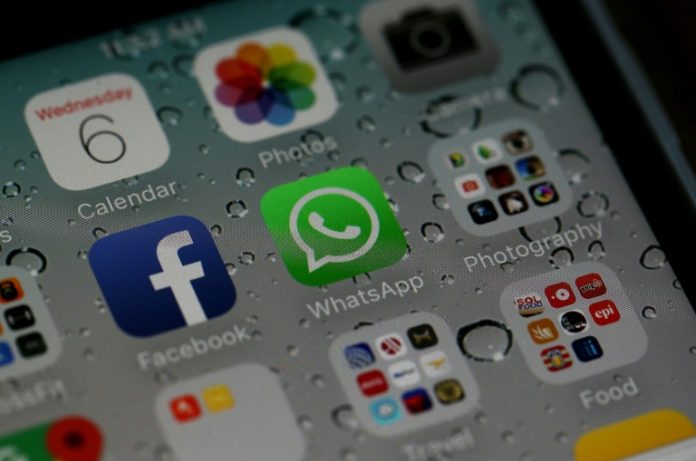Facebook said Tuesday it plans to move ahead with strong encryption for all its messaging applications, claiming that allowing law enforcement special access would end up being “a gift to criminals, hackers and repressive regimes.”
The comments from the leading social network come weeks after officials from the US, Britain and Australia called on Facebook to allow authorities to circumvent encryption to better fight extremism, child pornography and other crimes.
“The ‘backdoor’ access you are demanding for law enforcement would be a gift to criminals, hackers and repressive regimes, creating a way for them to enter our systems and leaving every person on our platforms more vulnerable to real-life harm,” the heads of Facebook’s WhatsApp and Messenger, Will Cathcart and Stan Chudnovsky, said in a letter to officials from the three countries.
Critics have argued that new forms of encryption – which can make it impossible for anyone except the sender and recipient to see the contents of a message – are locking out law enforcement.
Facebook, which already uses “end-to-end” encryption on WhatsApp, said in the letter it intends to do the same across all its messaging services.
Jay Sullivan, the privacy product chief for Messenger, told a congressional hearing Tuesday Facebook was aware of its duty to work with law enforcement, pointing to the tech giant’s assistance in terrorism and child abuse cases.

Earlier Tuesday, more than 100 activist organizations, security experts and industry groups warned against efforts to force tech companies to weaken encryption.
“These exceptional access mechanisms for law enforcement agencies would be the same ‘back doors’ that provide an opportunity for terrorists, criminals, and other parties to gain unauthorized access,” said the letter endorsed by groups including the American Civil Liberties Union, Amnesty International and Human Rights Watch.
“Technologists cannot build systems that are inherently able to tell when ‘bad’ people use them, just as engineers cannot design sidewalks and highways to crumble underneath the feet of certain people.”
It said special access demands would “embolden repressive and authoritarian regimes in their attempts to pressure messaging apps and device manufacturers to build surveillance capabilities into their products and services.”
A joint letter in October signed by US Attorney General William Barr, British Home Secretary Priti Patel and Australian Home Affairs Minister Peter Dutton urged Facebook to give authorities the ability to circumvent encryption used in its messaging services.

The officials said strong encryption made it more difficult for law enforcement to detect terrorism and child pornography, and that a move to implement “end-to-end” encryption on its Messenger platform could make matters worse.
“Facebook has not committed to address our serious concerns about the impact its proposals could have on protecting our most vulnerable citizens,” said the October letter.
At a Senate Judiciary Committee hearing Tuesday, New York District Attorney Cyrus Vance echoed those concerns, and argued that investigations were being crippled by the failure to get access to encrypted messages and smartphones, which cannot be accessed even with a warrant.
“Unintended or not, the reality remains that these tech titans are doing tremendous damage to our justice system, particularly justice at the local and state levels, by choosing to render themselves incapable of complying with a judge’s signed order,” Vance said.
















